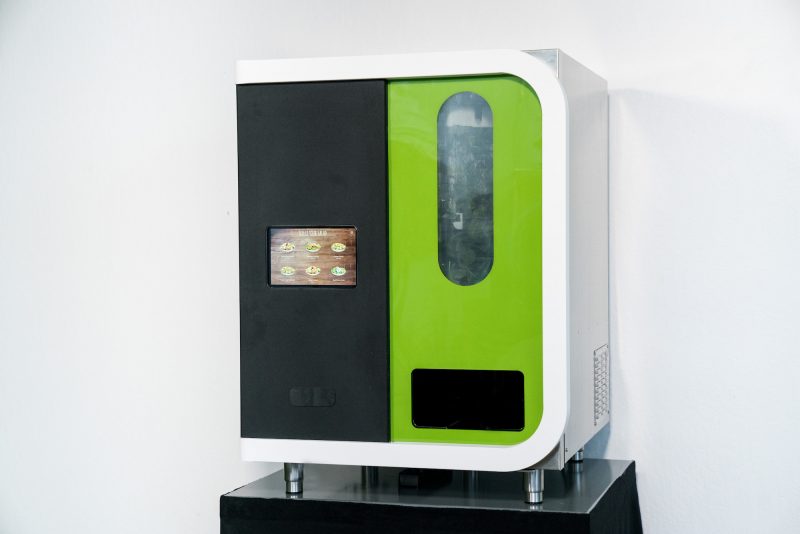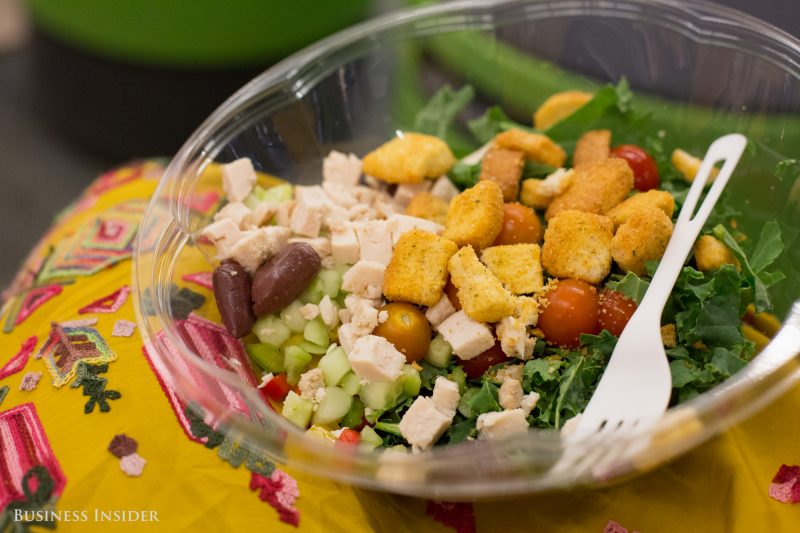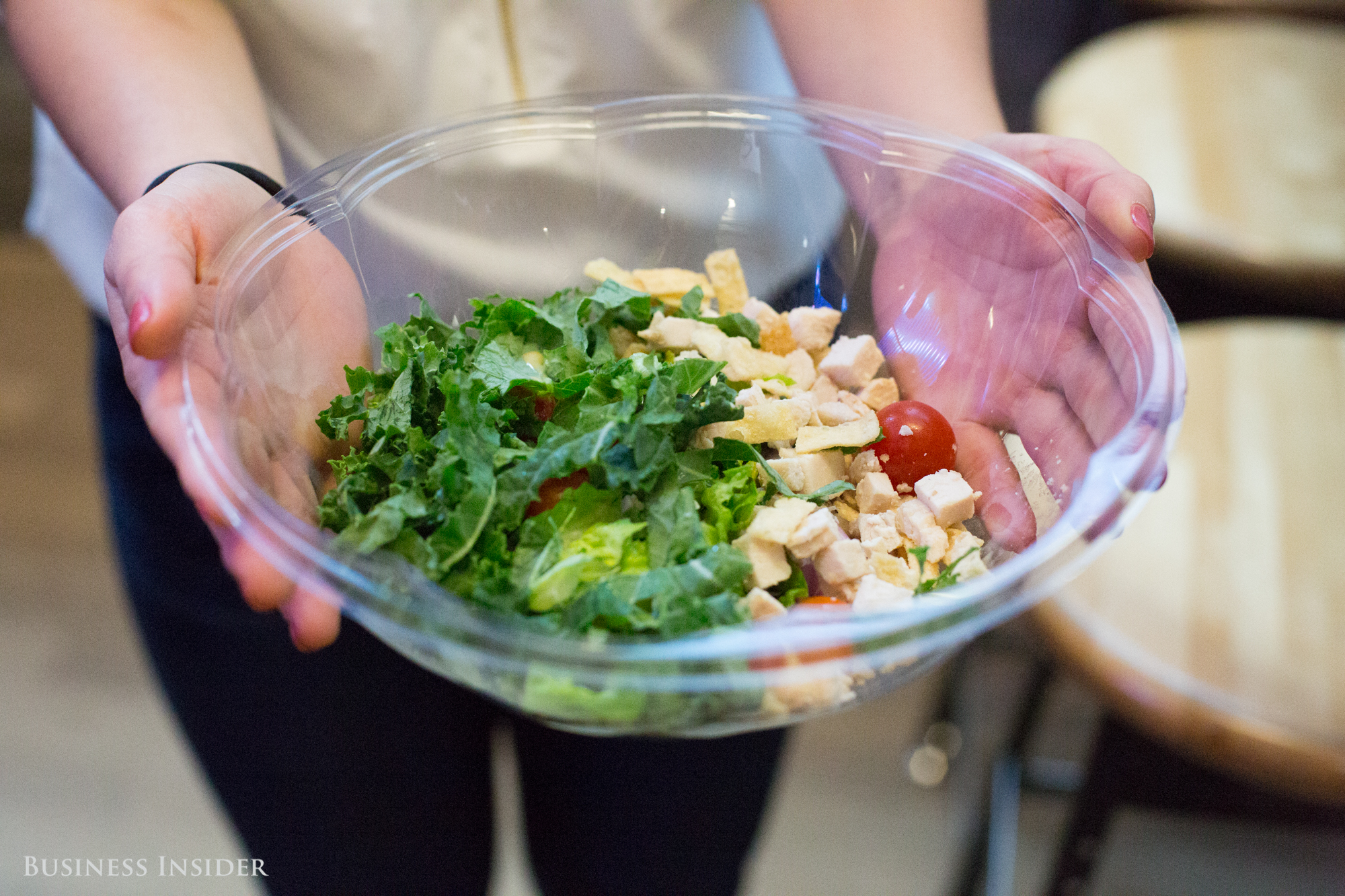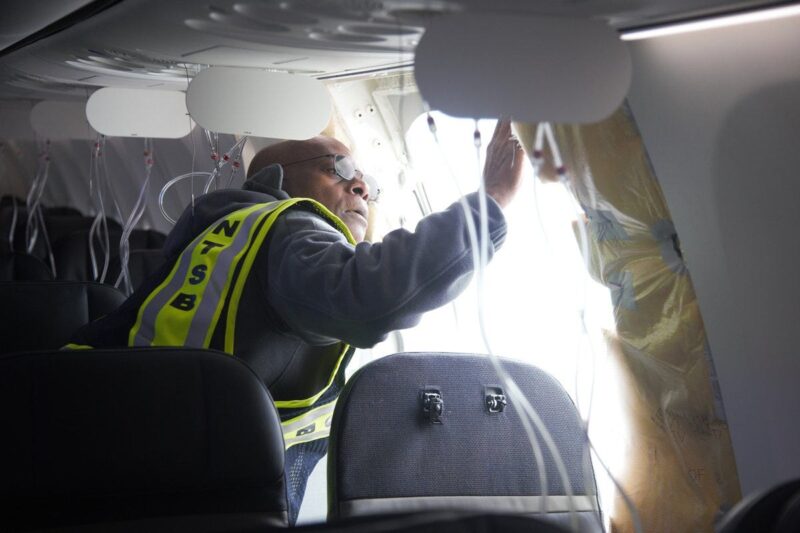In Silicon Valley, you can buy everything from pizza to coffee made by a robot.
Sally the Salad Robot, which debuted at San Francisco coding academy Galvanize on April 13, is more glorified vending machine than automated chef. She (it?) dispenses 21 ingredients to create more than 1,000 different salads, and each takes about a minute to make.
Deepak Sekar, CEO of robotics startup Chowbotics, says Sally’s goal is to provide workers with quick and healthy meals they can buy on-site. Sekar hopes to install about 125 salad-making bots in Bay Area tech offices through the end of 2017, and is in talks with WeWork and Amazon to bring Sally to their workspaces.

Three years ago, Sekar - an inventor who holds over 100 patents - hacked together a machine that combined spices and vegetables to make curry. He decided to turn his side hobby into a business when a Silicon Valley investor (and owner of 15 McDonald's restaurants) took interest. Sekar got a team together and worked for another two years on a salad-making version.
Sally can make salads, but she relies on humans to get part of the job done. The robot has canisters for different ingredients, which a company can source on its own or buy from Chowbotics. Every day, a person loads the canisters and replenishes them throughout the day.
When a customer orders a salad from Sally, they can make a custom combination or choose from a handful of signature salads created by Chef Charlie Ayers, who's known for being the first executive chef at Google. The menu rotates as seasonal ingredients become available.

The California Love Salad features ripe cherry tomatoes, bell peppers, cucumbers, Kalamata olives, and croutons served over a bed of kale. The ingredients are cut into small pieces, which Ayers says is good for computer programmers who want to graze while they work.
Sally can't mix salads yet, and avocado is noticeably missing from the ingredients menu. Sekar says the fruit is too soft to be handled by the robot, but the company is working on a solution.
The organizations that install Sally will determine the various costs of the salads. At Galvanize, the average salad will go for $8.
Chowbotics plans to sell the robot to companies for $30,000, and offers a monthly payment plan to make it affordable for midsized offices. The price will probably exclude small startups; Sally makes more sense for companies with cafeterias or infrastructure for storing ingredients.
Sekar says the cost is worthwhile if companies can squeeze more time out of their employees. He suggests that if just five employees (who make $100,000 each on average) decide to work until 8 o'clock five days a week - because they can grab dinner from Sally rather than scavenge for food at home - the value of their time comes in around $10,000 a month.
"Our revenue model is what I call SaaS - Salad as a Service model," he says.











